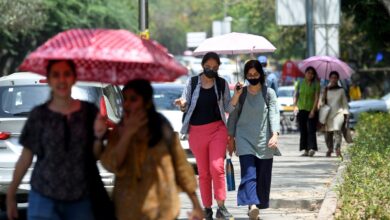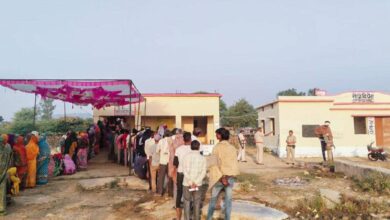Cheetah deaths: Madhya Pradesh chief wildlife warden transferred

Madhya Pradesh chief wildlife warden and head of the cheetah project at Kuno National Park (KNP) Jasbir Singh Chauhan was transferred on Monday after a steering committee meeting on the recent deaths of the cheetah was held in Delhi, said an official. As many as eight cheetahs, including three cubs born in India, have died at KNP in the past four months (File Photo) “JS Chauhan has been transferred as principal chief conservator of forest (production) while Indian Forest Services (IFS) officer Aseem Shrivastava has been appointed as the new chief wildlife warden,” said a government order without giving reasons for his transfer. After recent the death of two cheetahs – Tejas and Suraj – both African cheetahs at KNP due to alleged septicaemia after abrasions in the skin due to radio collars, questions were raised on monitoring of the cheetahs at the KNP in Sheopur drict. Suraj, the three-year-old cheetah found dead in the wild on Friday, had died of septicaemia caused due to skin chafing his radio collar, according to the chairman of the Cheetah Task Force. Whereas, four-year-old Tejas died in KNP due to suspected infighting. Chauhan, however, said he had no idea how the infection happened even as they followed all the protocols of the steering committee headed the former head of the National Tiger Conservation Authority, Rajesh Gopal. In a statement on Sunday, the environment minry denied any lapses and said the death of cheetahs took place due to natural reasons and reports of death due to infection because of radio collar had “no scientific evidence”. Meanwhile, in the meeting, it was also decided to conduct a medical check of all the cheetahs after reports of infection around the neck where radio collars are fitted due to wet and humid weather conditions, according to an official. “All cheetahs will be recaptured and medically assessed. The decision on ‘taking the collar off or change it’ will depend on how many cheetahs are infected,” said an official, adding that weather conditions in Africa and India are quite different. “The long spell of rains is a reason behind dermatitis that attract flies and its aggravation leads to septicaemia,” he said. Adrian Tordiffe, a veterinarian from South Africa, had on Sunday claimed that the Indian scients and officials at Kuno were keeping the South African scients “in the dark”. “South African cheetahs were translocated to India in a very good condition. They were all monitored wildlife veterinarians, before and while they were brought to Kuno,” Tordiffe said. Tordiffe, who was previously not invited to the cheetah committee meeting, attended Monday’s meeting. “I was called in the last minute and discussions were held on agreement conditions especially active involvement of us,” he said. Also Read: Eighth cheetah dies at Kuno park in MP; ‘Won’t be relocated’, says Union miner “International experts were assured of their active involvement in the Steering Committee discussions. And that there would be improved communication between the Indian and South African veterinarians,” he added. As many as eight cheetahs, including three cubs born in India, have died at KNP in the past four months of different ailments. Three cubs born to a Namibian female cheetah died due to heat stroke and malnutrition. Now, the KNP has 15 cheetahs – four in the enclosure and 11 in the wild. One cub was rejected his mother and is being taken care of the forest officials. In May, the Supreme Court had expressed concern over the death of cheetahs and asked the Centre to consider expanding their habitat in other states ABOUT THE AUTHOR She is a senior reporter based at Bhopal. She covers higher education, social issues, youth affairs, woman and child development related issues, sports and business & industries. …view detail





